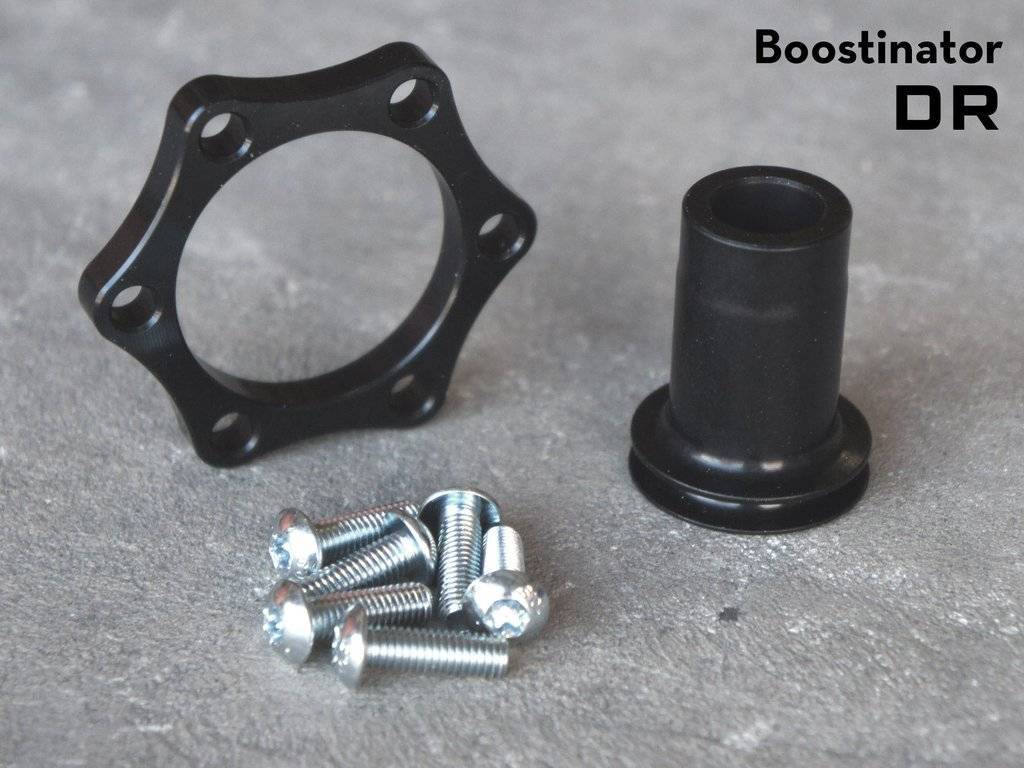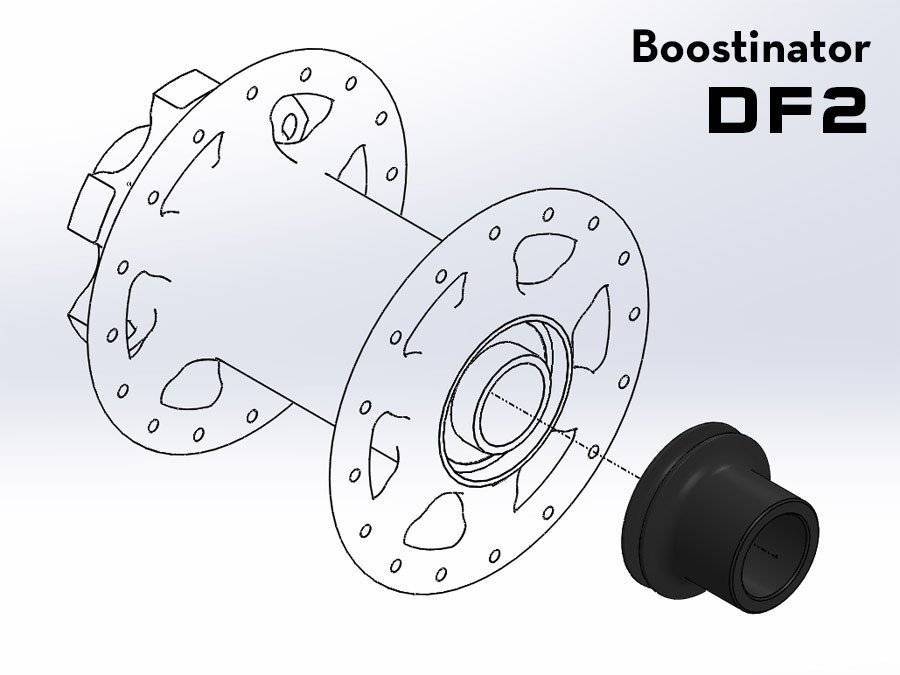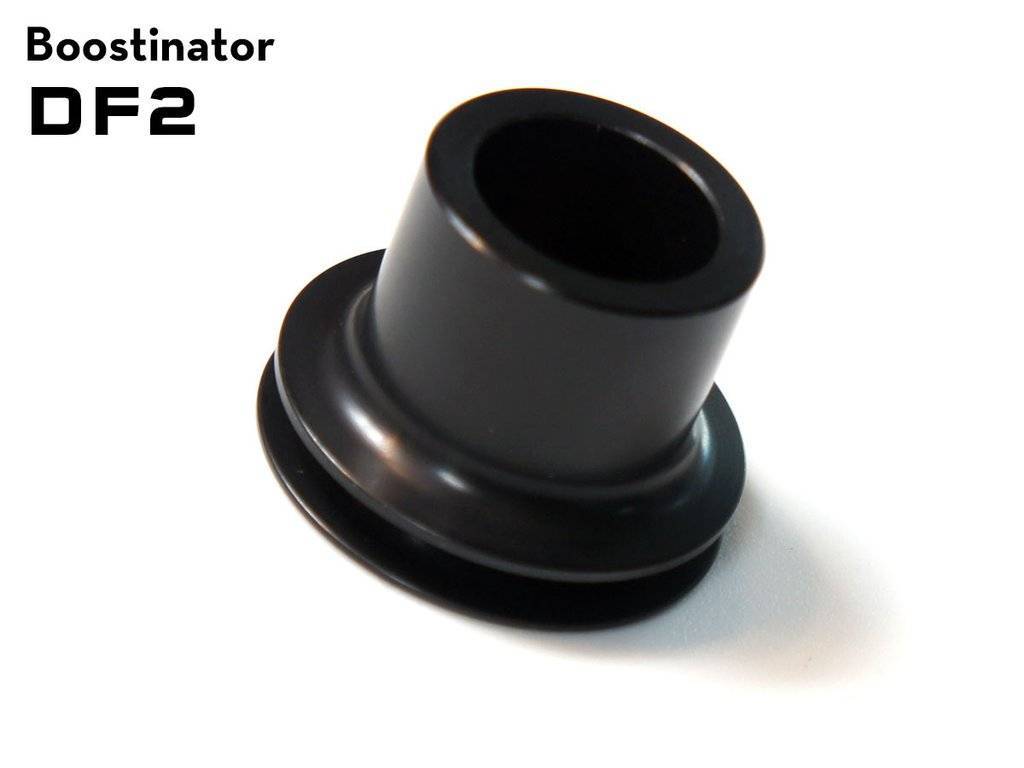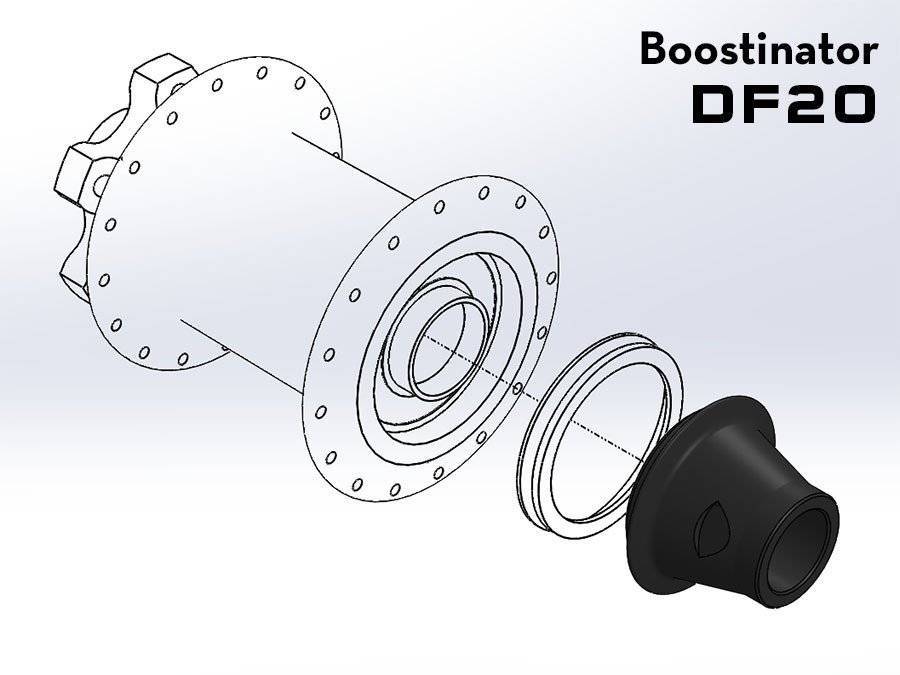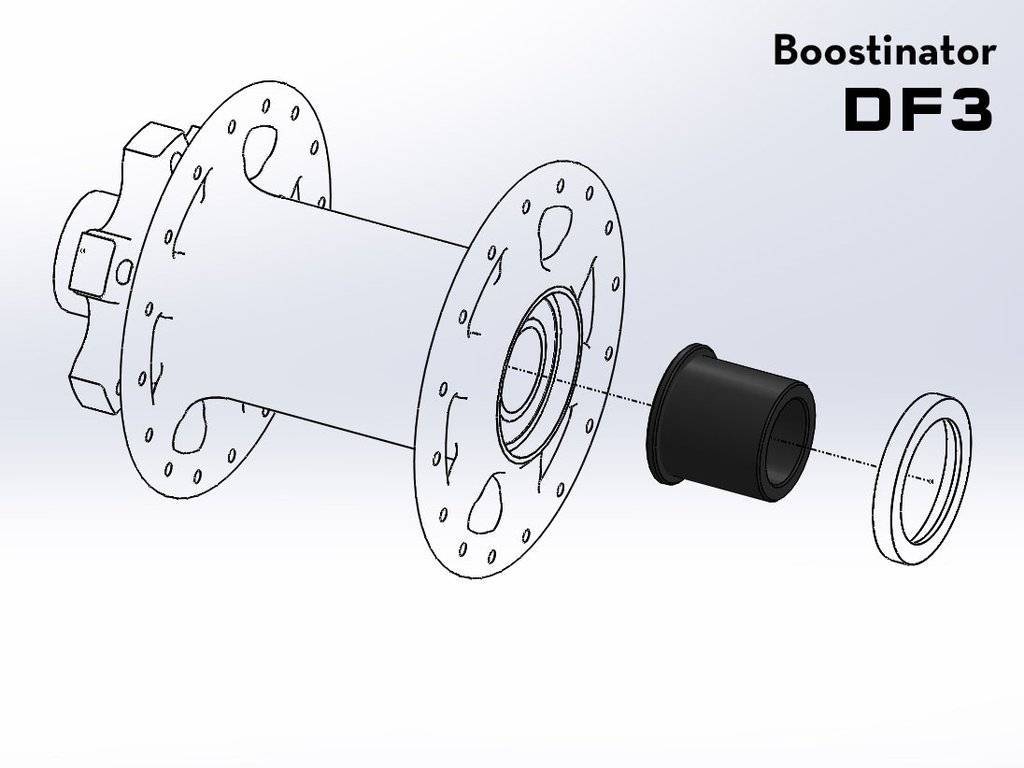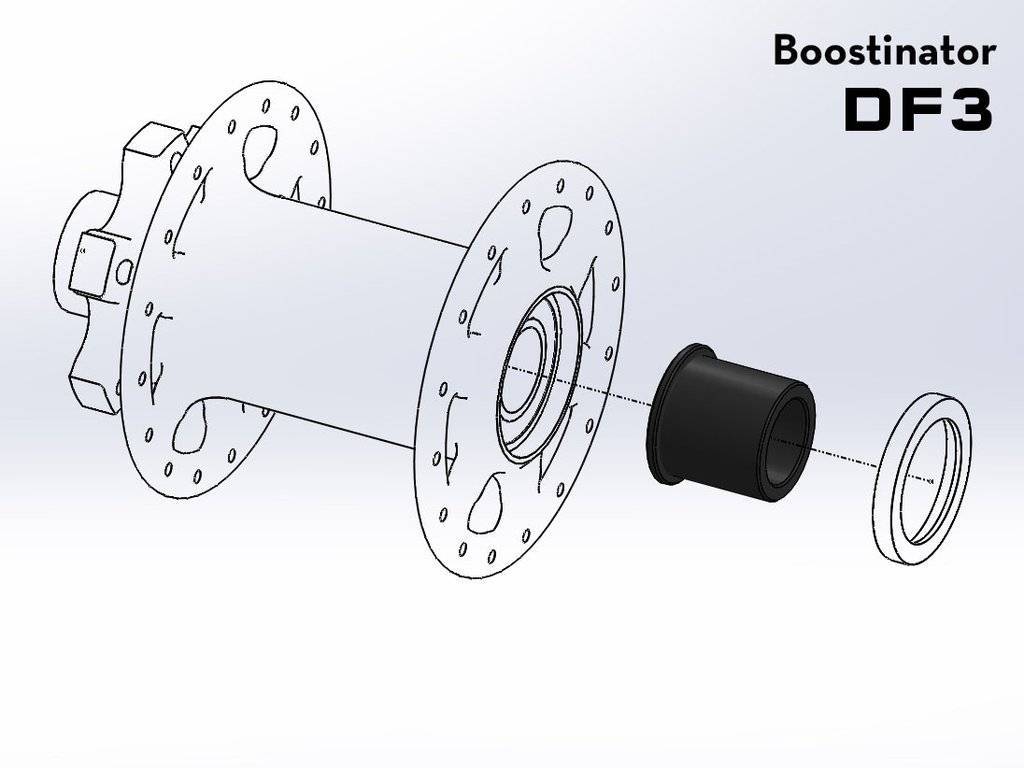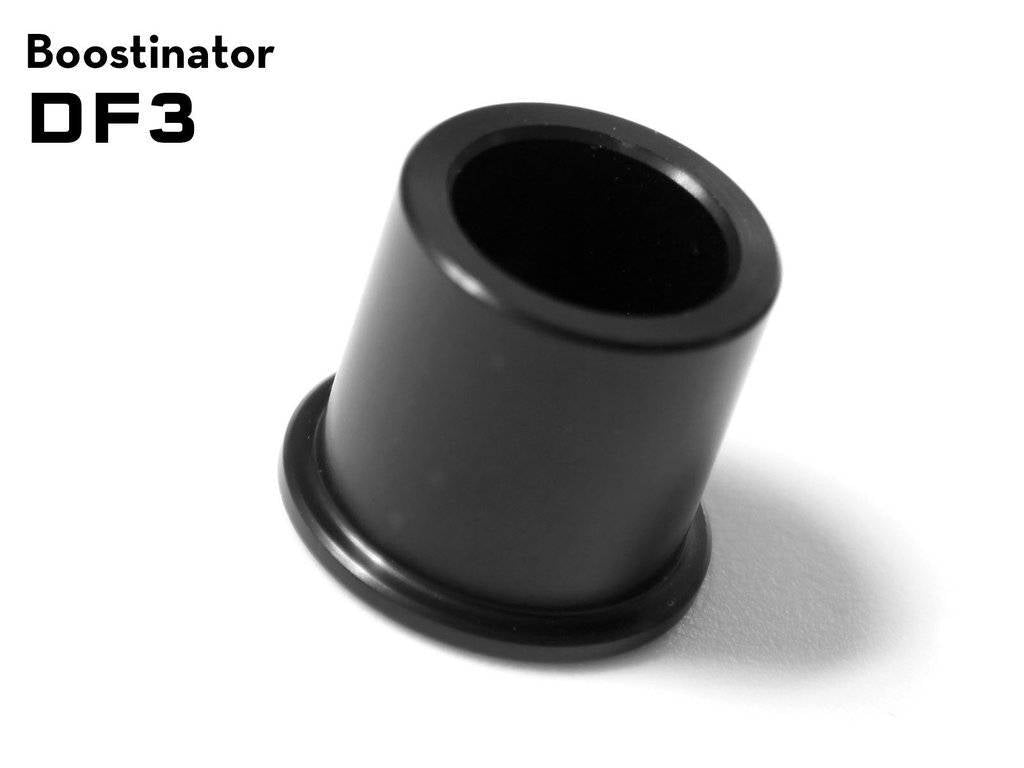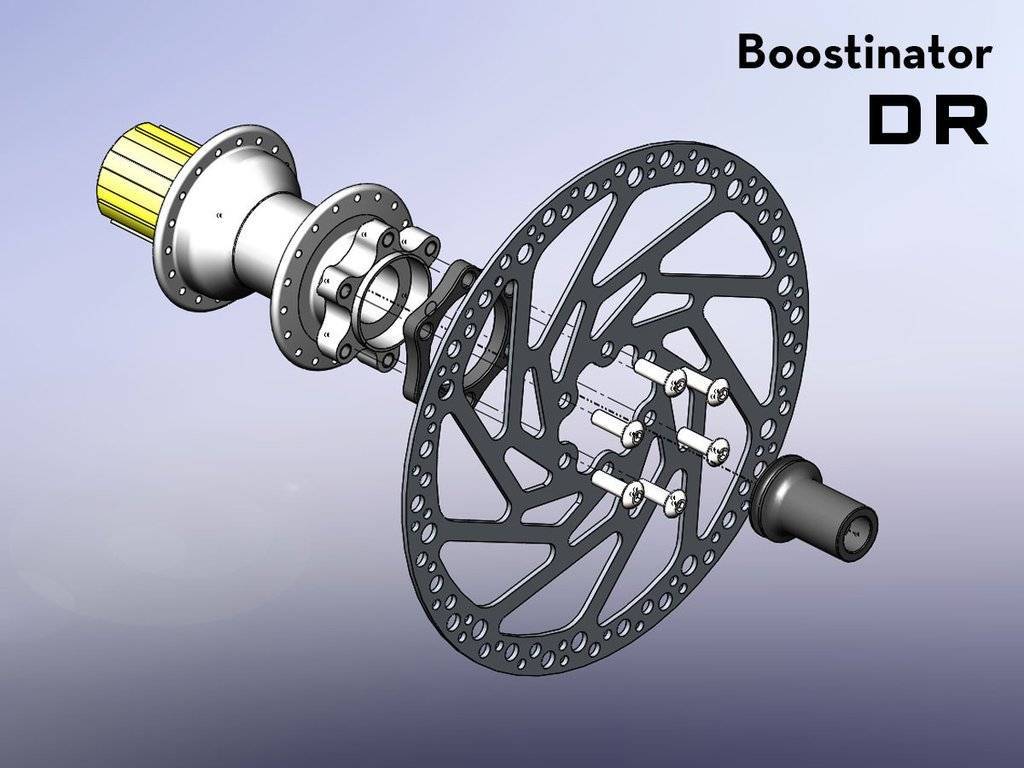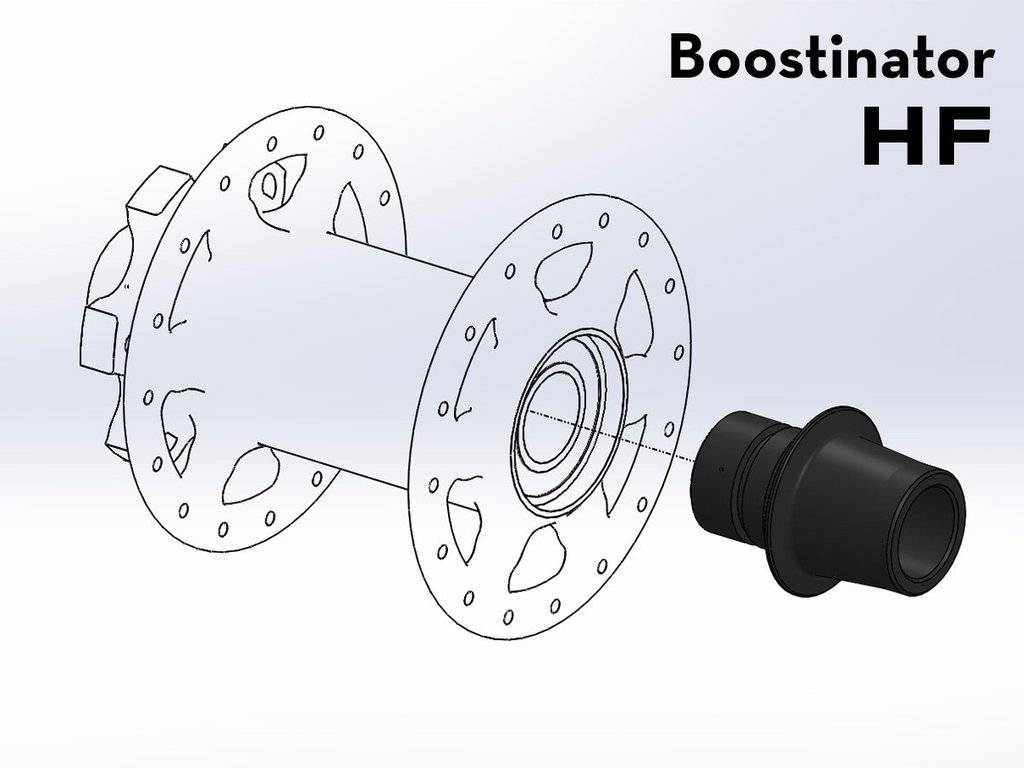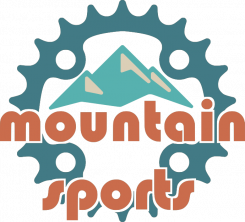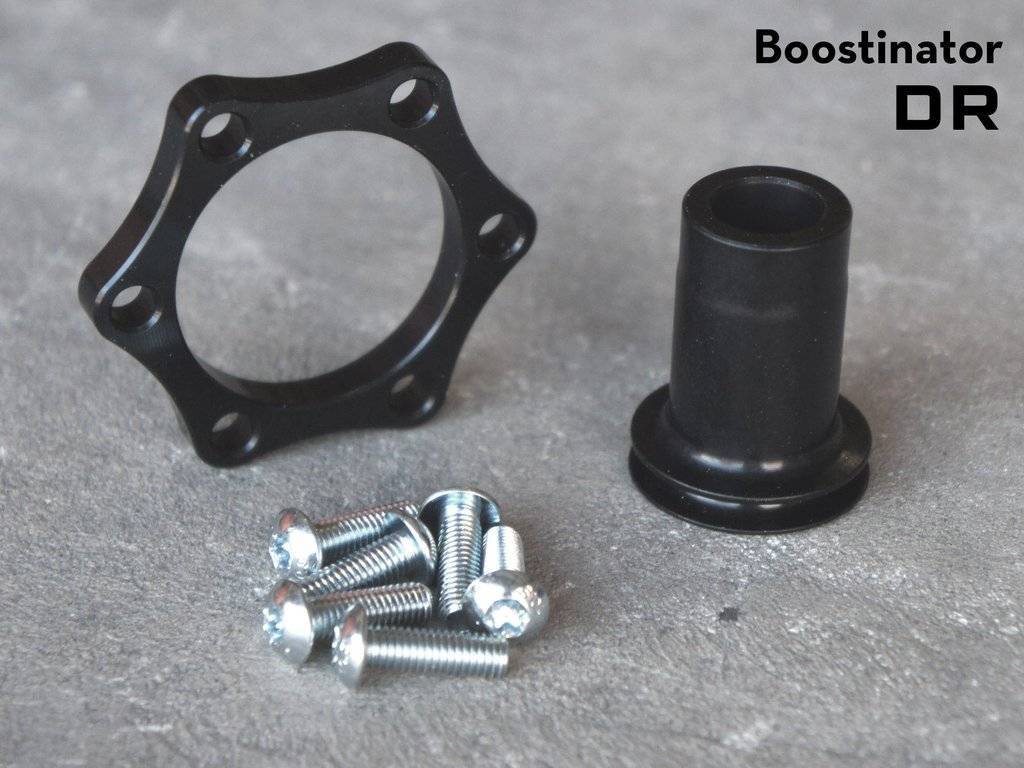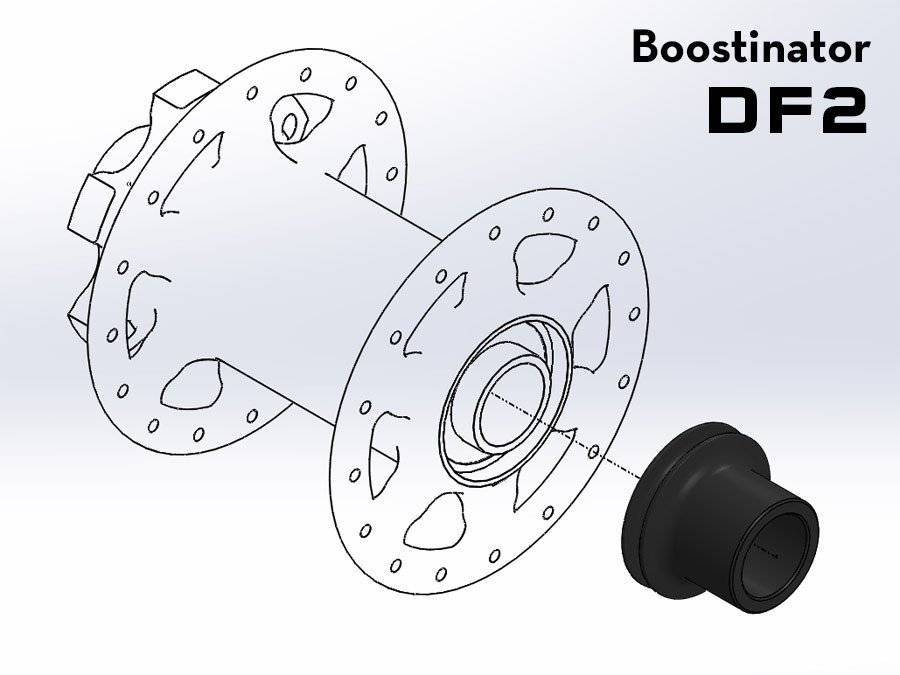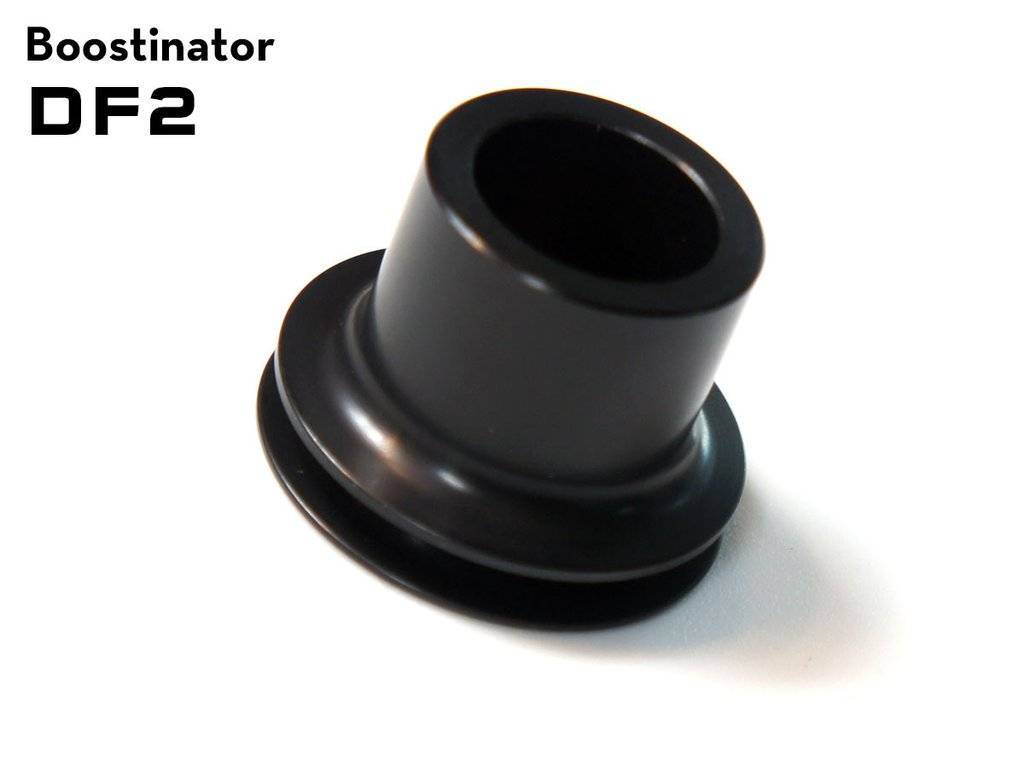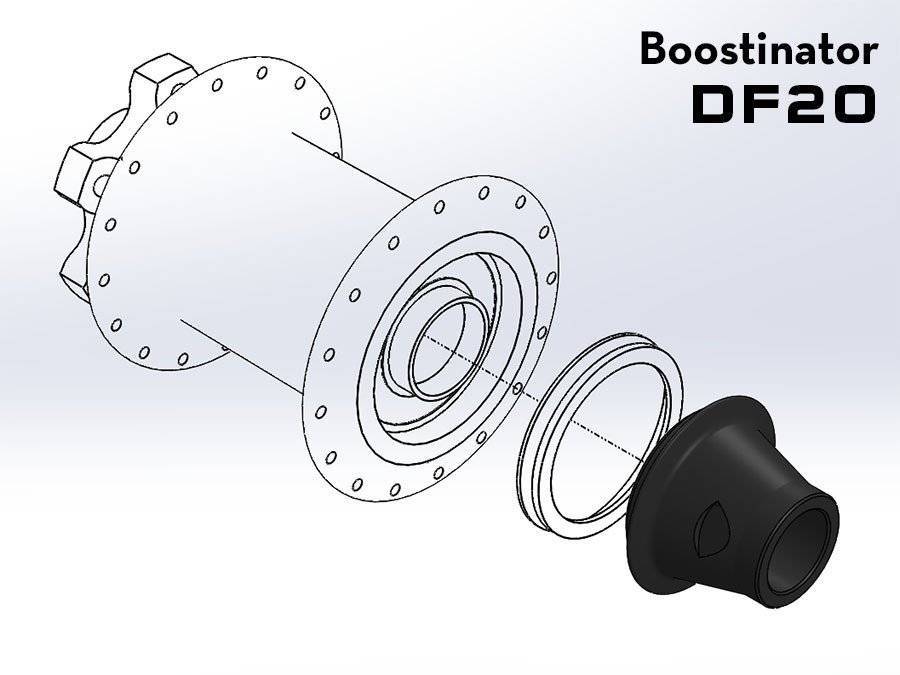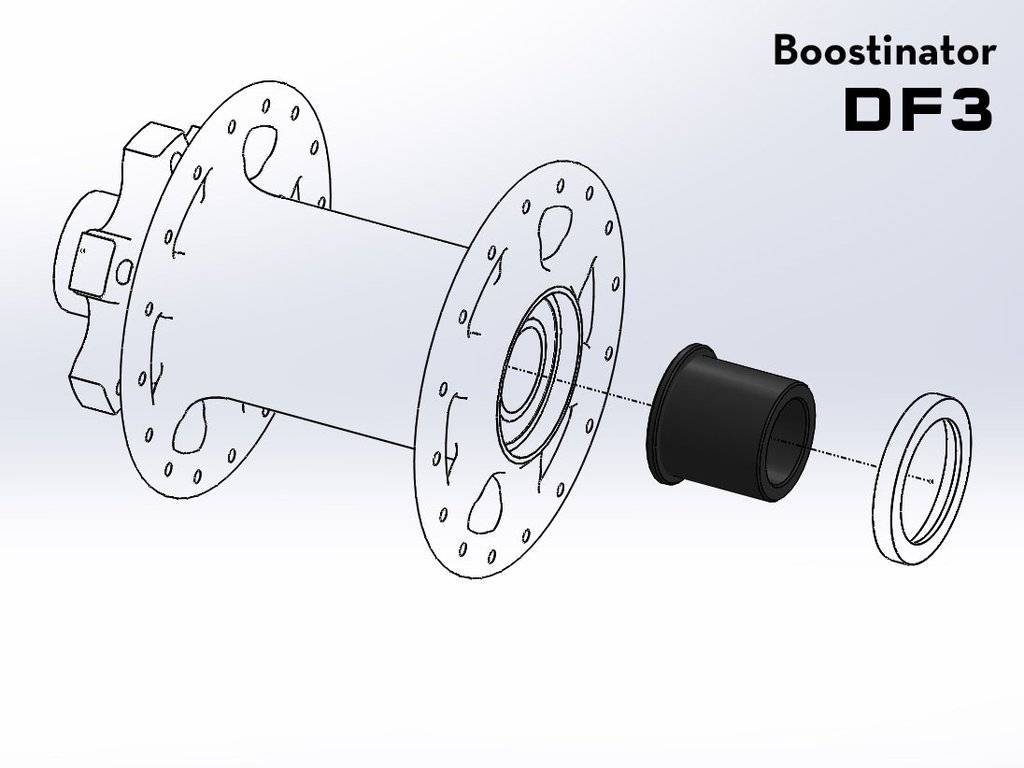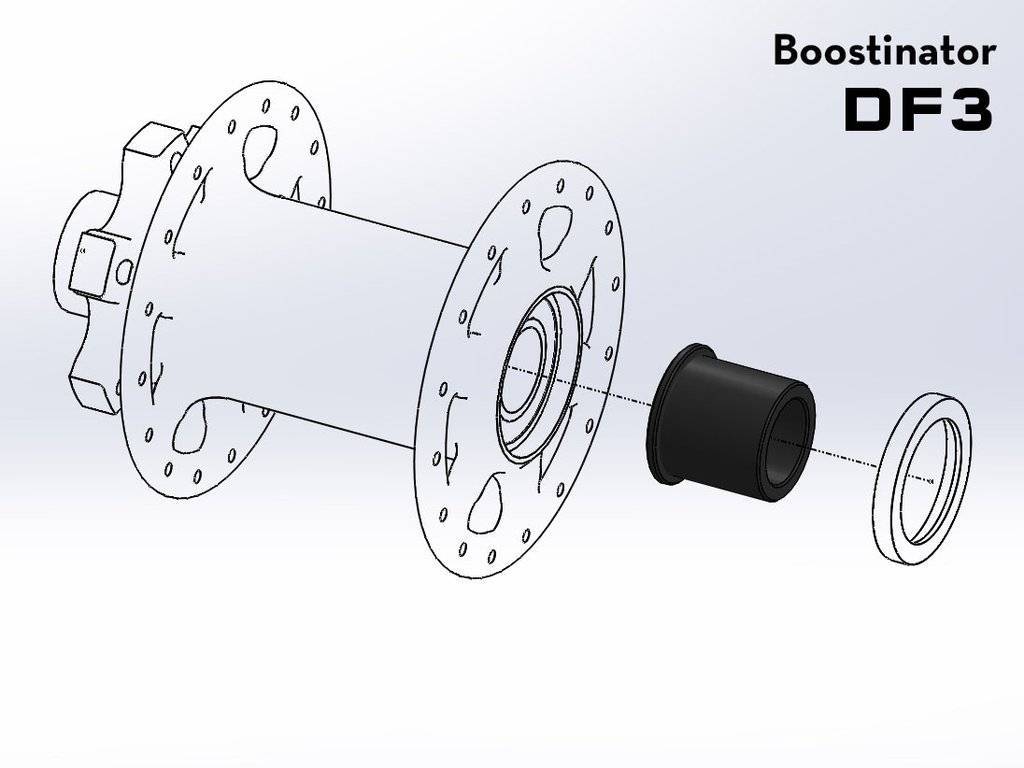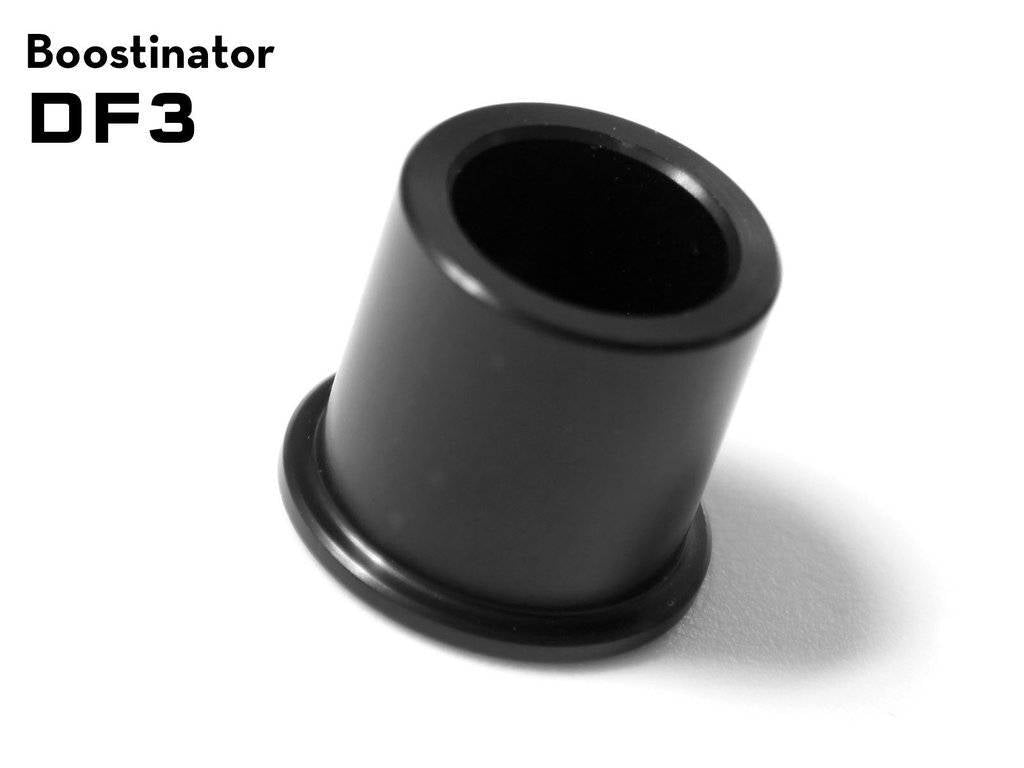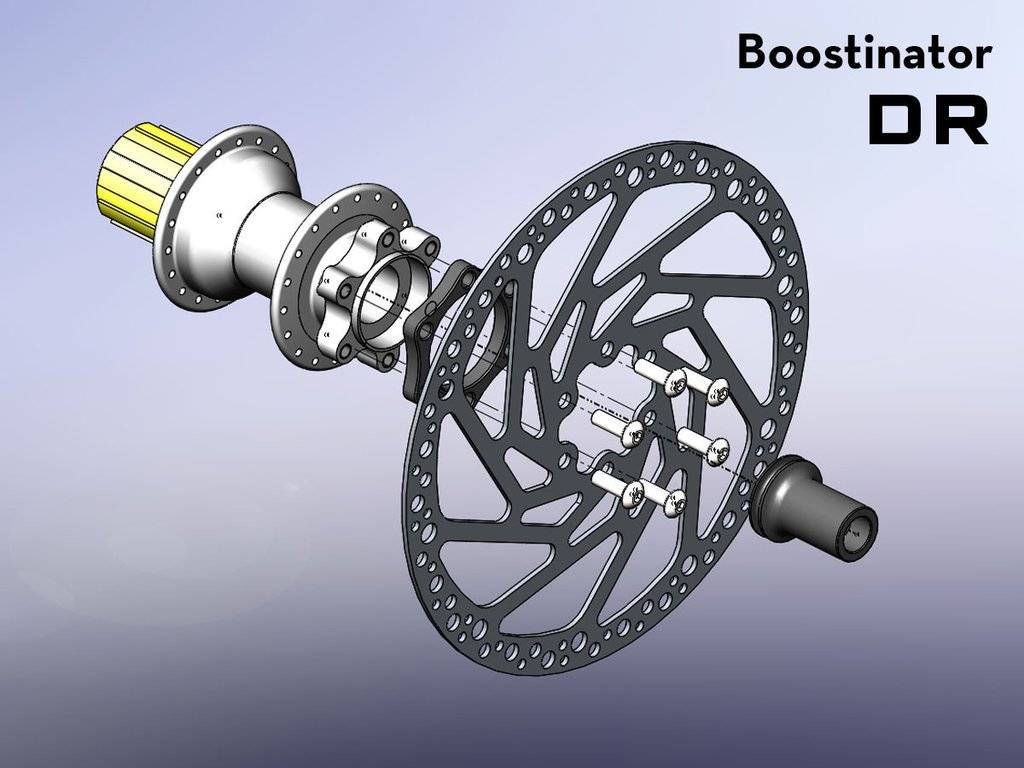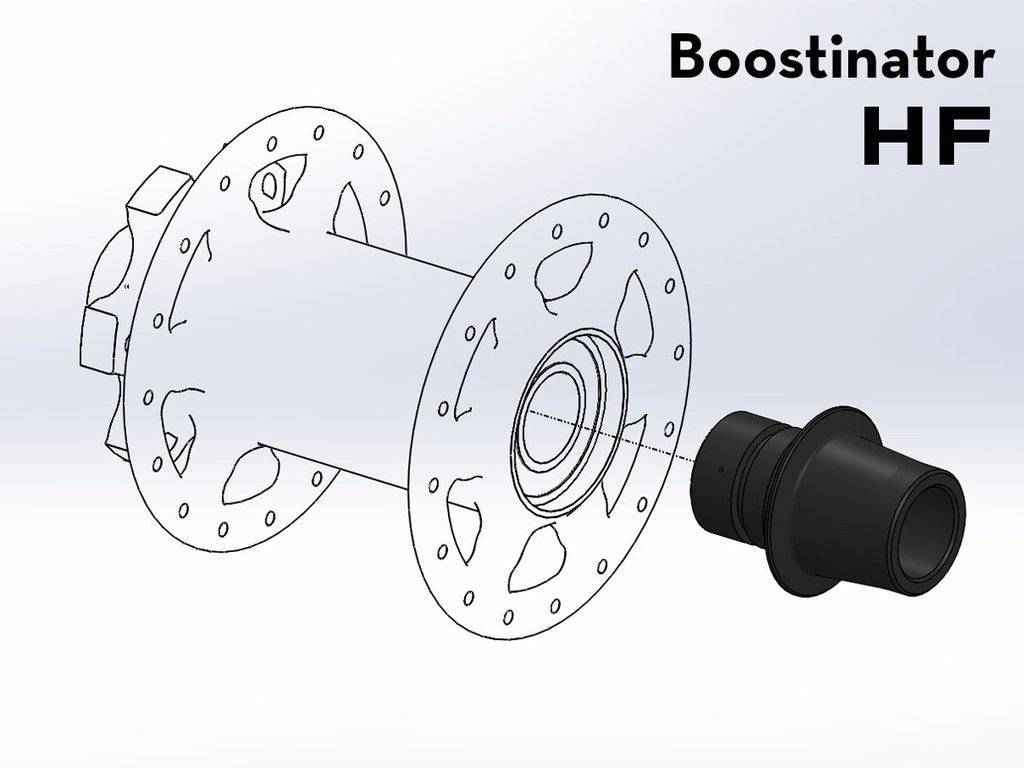Wolf Tooth Components
Boostinator
Boostinator
Couldn't load pickup availability
INFO
BOOSTINATOR KITS ALLOW EXISTING WHEELS TO BE MOUNTED IN BOOST-STANDARD FRAMES AND FORKS
Adapting to a changing world
As much as we love new and improved gear, the rapid proliferation of bicycle-related ‘standards’ can be confusing, frustrating, and costly to consumers.
While incremental, the benefits of the “Boost” 15x110mm front and 12x148mm rear axle standards are clear: better clearance for fatter tires & rims and reduced dish for stiffer, stronger wheels. The big bummer? Taking full advantage requires not only a new frame and fork, but new wheels as well.
In response, we have developed the Boostinator. When paired with compatible 15x100mm or 12x142mm hubs, Boostinator kits allow existing wheels to be mounted in Boost-standard frames and forks. Disc and drivetrain positions are maintained and, thanks to a quick re-dish, spoke bracing angles are improved.
Boostinator kits consist of a specially-designed axle end cap and—in the case of rear kits—a precision-machined rotor spacer with a set of six high-strength bolts. In keeping with Boost specifications, the disc and cassette are shifted outboard, allowing brakes and derailleurs to function as designed. See how easy it is by checking out the Boostinator Installation Instructions.
Compatibility:
-
Specific model compatibility listed below under the “Models” section
-
Front boostinators are only an endcap and do not require rotor spacer. The wheel is re-dished
-
Rear boostinators require both a re-dish and rotor spacer
-
Hubs spacing is 100mm front and 142 rear, and the Boostinators make them 110 and 148 respectively
-
Compatible with 6-bolt FRONT wheels and SOME centerlock models
-
Compatible with ONLY 6-bolt REAR wheels (there is no way to space centerlock rotors over 6mm)
-
For a complete list of compatible DT Swiss build (Spline) wheels click here
-
NOT recommend (or safe) for non-symmetric lacing like the 2:1 lacing found on some of Industry Nine’s wheels
Boostinator DF2
TheBoostinatorDF2 is compatible with DT-Swiss 2011 and newer 15x100mm 240s front hubs.
-
Use DF-20 for 240s Oversize (20mm convertible) hubs. These hubs have a threaded non-disc side endcap that has little wrench flats on it
-
Centerlock hubs are supported
-
The Boostinator DF2 is also compatible with some complete DT Swiss Spline One front wheels. Click here for a compatibility table
-
Net weight: 6g
Boostinator DF3
The Boostinator DF3 is compatible with DT-Swiss 15x100mm 350- and 370-series front hubs.
-
Centerlock hubs are supported
-
The Boostinator DF3 is also compatible with some complete wheels from DT Swiss. Click here for a compatibility table
-
Net weight: 5g
Boostinator DF2O
The Boostinator DF2O is compatible with DT-Swiss 15x100mm 240s Oversize (20mm convertible) front hubs. These hubs have a threaded non-disc side endcap that has little wrench flats on it.
-
Net weight: 5g
Boostinator DR
The Boostinator DR is compatible with DT-Swiss 12x142mm Star Ratchet (240- and 350-series) rear hubs with 6-bolt (IS) rotor mounts.
-
Centerlock hubs are not supported
-
180- and 190-series hubs are Centerlock only
-
The Boostinator DR is also compatible with some complete wheels from DT Swiss, Roval (Specialized), Giant, Syncros (Scott), and others that use DT’s Star Ratchet internals. A compatibility table of DT Swiss wheelsets is available here
-
Contact us for compatibility (having a photo or two of your hubs and end caps are particularly helpful)
-
Net weight: 18g
Boostinator HF
The Boostinator HF is compatible with 15x100mm Hope Pro 2 EVO and Pro 4 front hubs.
-
Non-EVO Pro 2 hubs are not supported
Boostinator HR
The Boostinator HR is compatible with 12x142mm Hope Pro 2 EVO and Pro 4 rear hubs.
-
Non-EVO Pro 2 hubs are not supported
-
Net weight: 18g
Specs:
-
Each Boostinator kit is CNC machined from 6061 aluminum and anodized in the USA
-
Rear kits come with appropriate-length Class 10.9 bolts – each roughly 40% stronger than more common Class 8.8 hardware
Questions & Answers
Q: What about the rim- won’t it be off center?
A: That’s true–but it’s an easy fix with some benefits:
-
By shifting the hub flanges slightly, spoke bracing angles are brought closer to symmetric for a stiffer, stronger build.
-
A typical rear wheel (Velocity Blunt on DT 240s) will see its effective non-drive side spoke length reduced by 0.4mm, the drive side by 0.1mm- both minimal changes and well within typical spoke length tolerances.
-
In the example above, the drive-side spokes will need to be loosened 7/8-turn, the non-drive tightened by 1/4-turn.
-
Your wheels probably wanted a true already, didn’t they?
Q: The bolts are longer–they’ll all break and people will die!
A: That is the last thing we want, so enlisted some engineers from our local nuclear weapons laboratory (seriously) to crunch the numbers. It turns out that, with the spacer installed each bolt is four times stronger than needed to handle the forces generated by the strongest brakes on the market. That said…
-
Rear Boostinator kits are not approved for rotors larger than 183mm
-
Proper torque and installation pattern on the bolts is required as prescribed by the rotor and brake manufacture
-
Use a torque wrench
Q: The axle is unsupported–won’t it be flexy and horrible?
A: With the thru axle bearing the load the model is essentially identical to a Boost-native hub with slightly closer bearing placement.
-
On the drive side, where the majority of unsupported axle lies, nothing changes.
-
Theoretically, the system won’t be quite as stiff as a true Boost wheel, but it will be very, very close (and a whole lot less expensive).
Q: Will I need a new crankset or spider?
A: Possibly.
-
In the case of multi-ring drivetrains or when using plus-sized wheels and tires, a Boost-specific spider is recommended, not only for shifting performance but for frame and tire clearance as well.
-
If running a single chainring or more ‘normal’ tires, likely not. Visit our friends at Wolf Tooth Components for an explanation of why.
*All trademarks are the property of their respective owners. Unless stated otherwise, compatibility assertions reflect the position of Wolf Tooth Components LLC and do not constitute or imply endorsement by the trademark holder.
